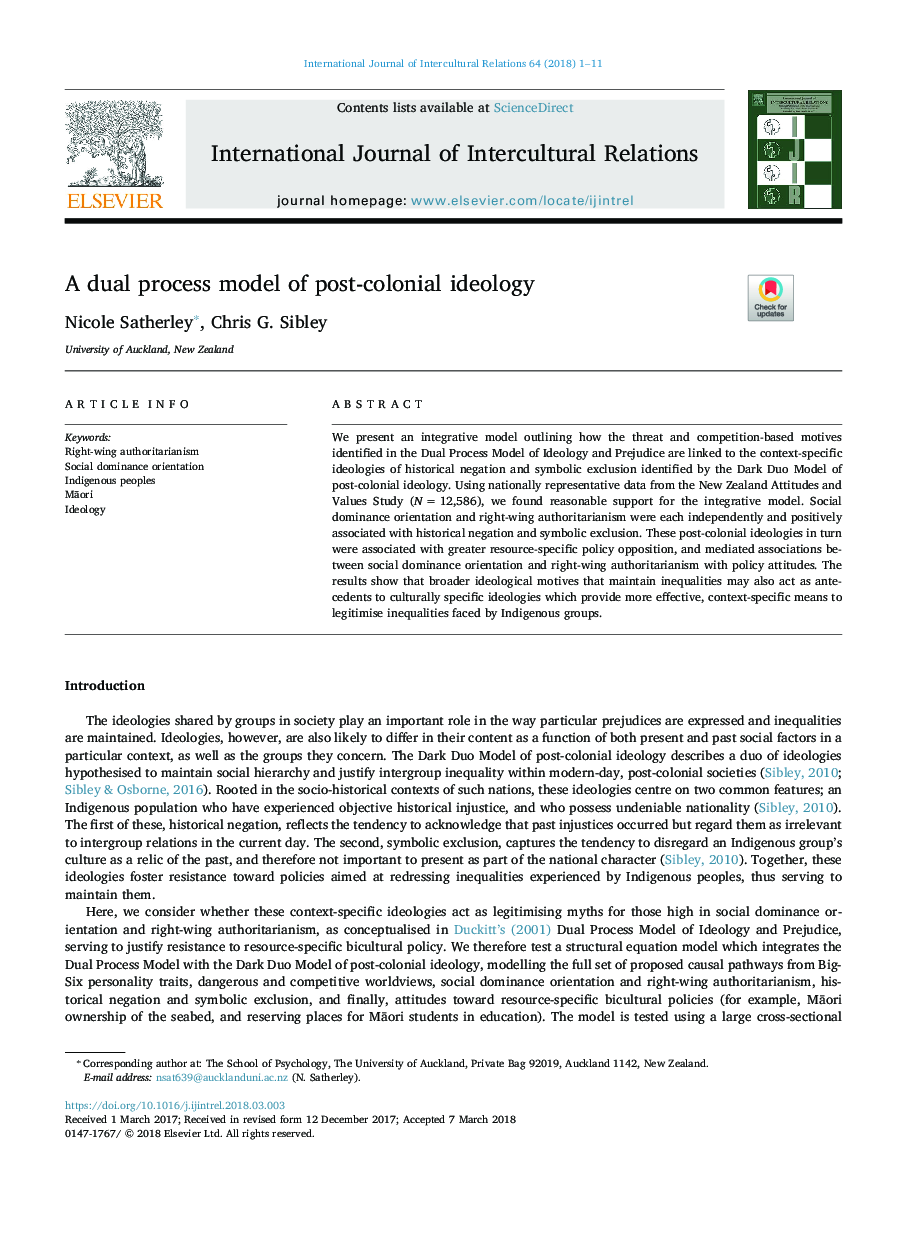| Article ID | Journal | Published Year | Pages | File Type |
|---|---|---|---|---|
| 7323612 | International Journal of Intercultural Relations | 2018 | 11 Pages |
Abstract
We present an integrative model outlining how the threat and competition-based motives identified in the Dual Process Model of Ideology and Prejudice are linked to the context-specific ideologies of historical negation and symbolic exclusion identified by the Dark Duo Model of post-colonial ideology. Using nationally representative data from the New Zealand Attitudes and Values Study (Nâ¯=â¯12,586), we found reasonable support for the integrative model. Social dominance orientation and right-wing authoritarianism were each independently and positively associated with historical negation and symbolic exclusion. These post-colonial ideologies in turn were associated with greater resource-specific policy opposition, and mediated associations between social dominance orientation and right-wing authoritarianism with policy attitudes. The results show that broader ideological motives that maintain inequalities may also act as antecedents to culturally specific ideologies which provide more effective, context-specific means to legitimise inequalities faced by Indigenous groups.
Related Topics
Social Sciences and Humanities
Business, Management and Accounting
Business and International Management
Authors
Nicole Satherley, Chris G. Sibley,
